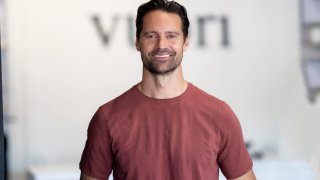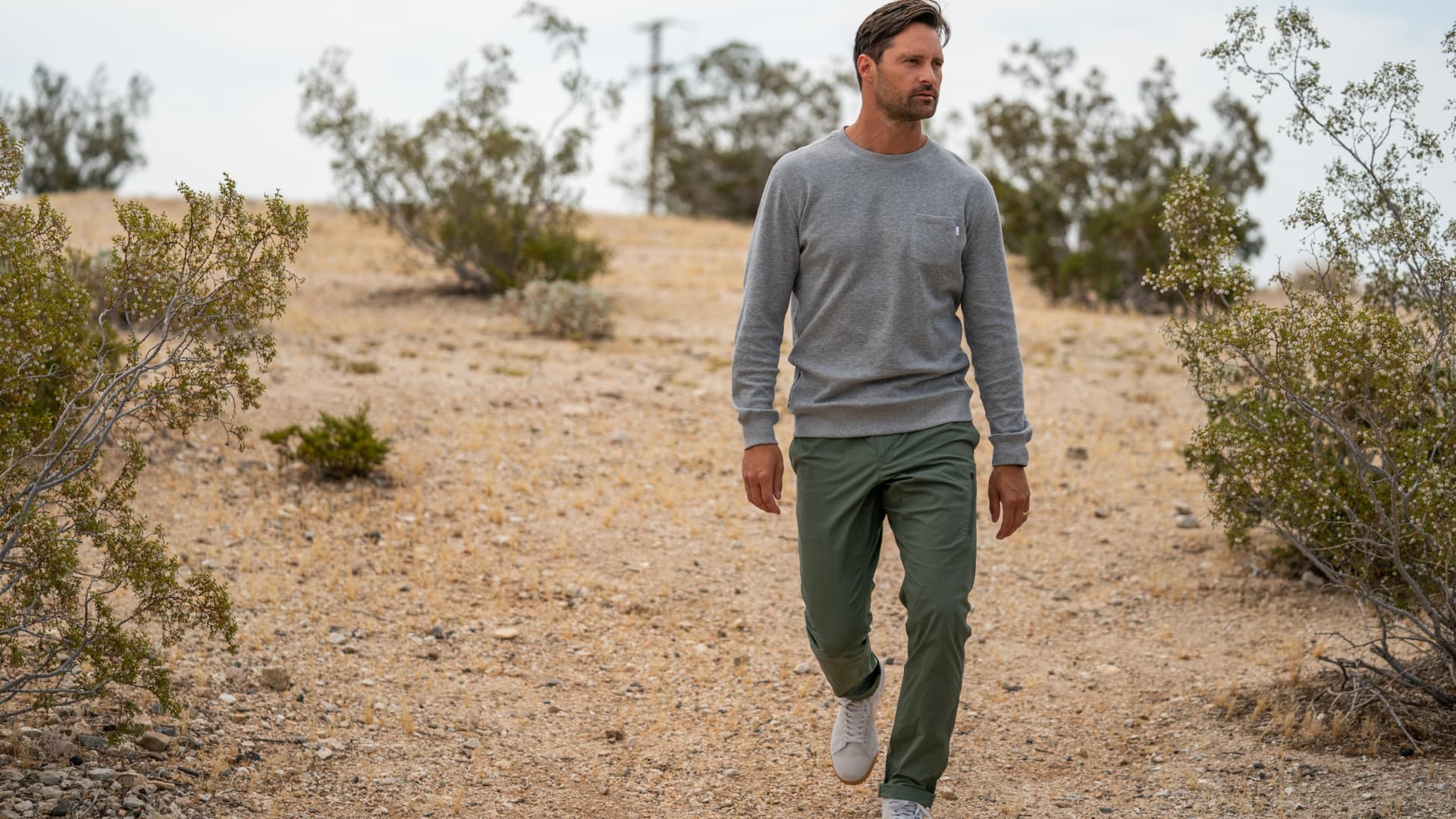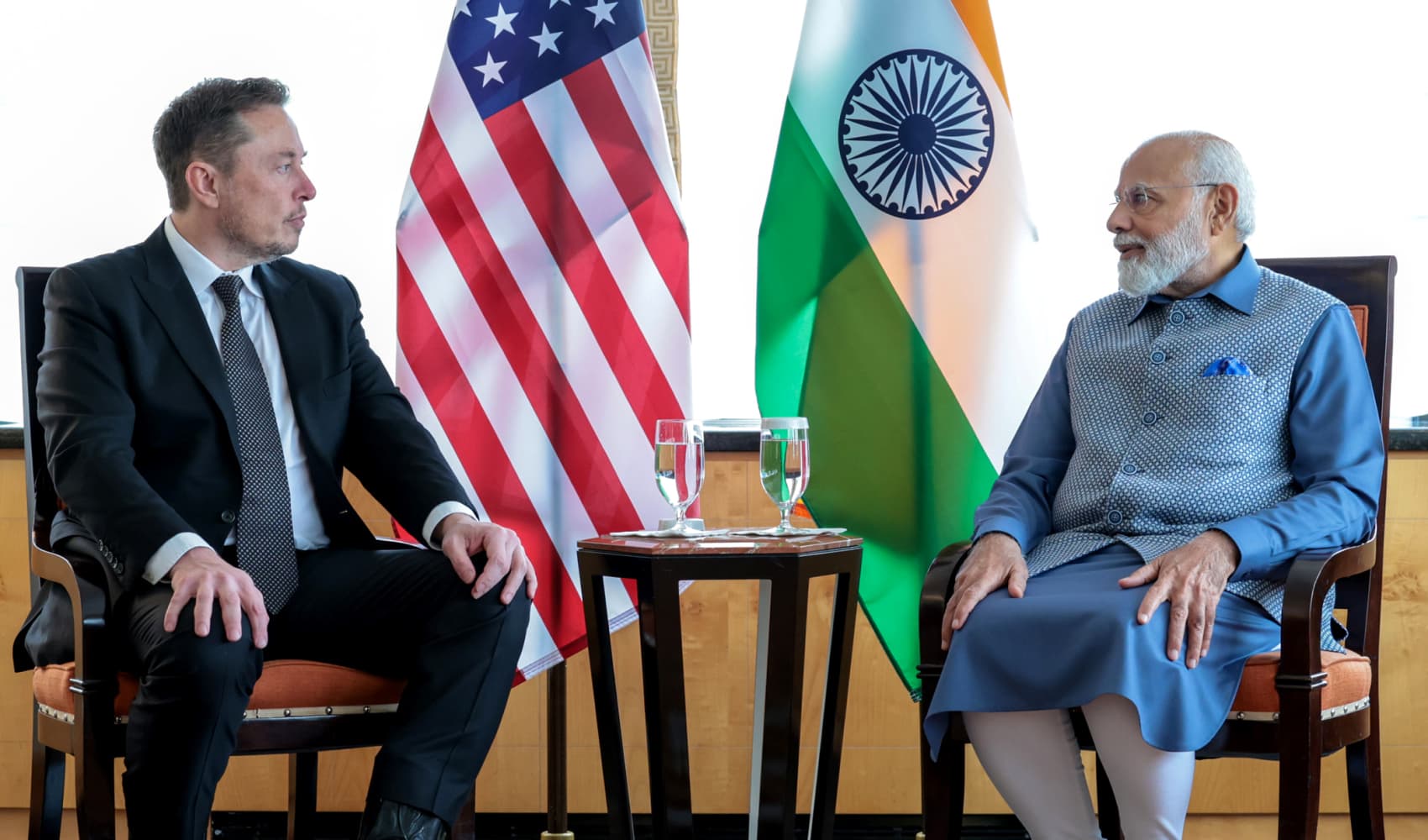
This story is part of CNBC Make It's The Moment series, where highly successful people reveal the critical moment that changed the trajectory of their lives and careers, discussing what drove them to make the leap into the unknown.
You've probably seen social media ads for Vuori's popular joggers, one of the apparel products that's rocketed the Encinitas, Californa-based startup to a $4 billion valuation.
But less than two years after CEO Joe Kudla, 45, quit his consulting job to launch Vuori in 2014, "we were starting to realize that we were going to run out of money," he tells CNBC Make It.
Kudla, an accountant by training, started the company as somewhat of a Lululemon for men: He enjoyed surfing and yoga, and didn't see high-quality activewear companies vying for his attention in gyms and yoga studios.
Get South Florida local news, weather forecasts and entertainment stories to your inbox. Sign up for NBC South Florida newsletters.
After raising $700,000 in a "friends and family" funding round, Vuori put its products in yoga studios and fitness centers. They stayed there, barely selling.
Less than two years after launching the brand, Kudla says Vuori came within four weeks of running out of money.
"We were left with few options, and we were running out of money very fast," Kudla says. "I was really frightened we were going to lose the business."
Money Report
He requested feedback from the customers Vuori did have, who said his vision was off-base: The clothes were just as useful, if not more so, in all-day settings. Fixing it meant using a direct-to-consumer e-commerce model, with social media ads targeting a wider audience with broader interests.
Swallowing his pride was hard, and spending his last cash reserves on an untested strategy was deeply risky. His company was struggling, but alive. If this failed, it'd be irreversibly dead, and his investors might never bet on him again.
He took the leap.
"[The impact] was almost immediate," Kudla says. Within months, the company saw $2 in sales for every dollar spent on advertising. "Very quickly after that, we got to a three-to-one [ratio], and then we were getting to four-to-one," he adds.
By the end of 2017, Vuori was profitable. In fact, as online sales picked up, Vuori's products even finally started selling better in gyms and yoga studios, Kudla says. Today, the company operates 30 retail stores across the U.S. and U.K., and plans to open 100 more with the $400 million it raised in 2021.
Here, Kudla discusses the fear he felt, how he recognized the make-or-break moment and what he wishes he'd known upon making that crucial decision.
CNBC Make It: What were you thinking and feeling when it looked like Vuori might run out of money?
Joe Kudla: I was extremely scared.
The idea of failing was daunting, because I didn't want to go back to doing what I was doing before. We had to make a decision to venture into the unknown. We didn't have a lot of time on our hands, and we didn't have a lot of money.
It's frightening, this idea that you're going to go out and spend thousands of dollars when you don't have a lot of money left, with no guarantee that there's going to be a response. You can easily spend your last $20,000 in advertising and get no sales, and then you haven't shown your investors any kind of repeatable process, no defined path to growth.
If we didn't get that message right, we were out of business.
How do you recognize when it's time to make a leap like that?
It's hard, because I think a lot of entrepreneurs have a kind of distortion reality field. That's what makes them have the confidence to set out on these crazy paths and pursue these dreams.
How do you step outside yourself and really think critically and objectively about where your business is at, and how it's resonating with customers?

Yoga and meditation were two things that I was adopting in my personal life as I was going on this journey. They served me really well in just taking time to be still, sit with my thoughts and focus on that clarity.
When you do that, you'll develop a more unbiased, objective sense of awareness that will help you identify patterns in your business. It's really important that you find that time for quiet, whether that's going for a nature walk by yourself, yoga, meditation or breathwork.
What do you wish you'd known in that moment?
I didn't deeply enough appreciate the power of product-market fit and marketing. You can read a million books, but until you live it and experience it, [you won't] understand how just a subtle tweak in your approach or adjustment to your product can make all the difference.
Having an understanding of that would have served me really well. I would have expected the journey to be a little bit bumpier, and therefore maybe slept a little bit better.
Where would Vuori be now if you hadn't made this change?
We were going to have a really hard time raising the money to keep going. The likely scenario is: We'd be out of business.
Another possibility is that we'd raise money at really disadvantageous terms, and I would become disillusioned and frustrated with the economics of our business, because I would have had to give it away to get the money.
Either way, it would have been not a good situation.
And, what about you?
I think, once an entrepreneur, always an entrepreneur. You get this bug for bringing an idea to life. The addiction for people that choose this path is around seeing a vision in your head and bringing that to life, and that's really hard to get out of your system.
So, I think that if it wasn't Vuori, I would be pursuing something else.
This interview has been edited for length and clarity.
DON'T MISS: Want to be smarter and more successful with your money, work & life? Sign up for our new newsletter!
Get CNBC's free Warren Buffett Guide to Investing, which distills the billionaire's No. 1 best piece of advice for regular investors, do's and don'ts, and three key investing principles into a clear and simple guidebook.






